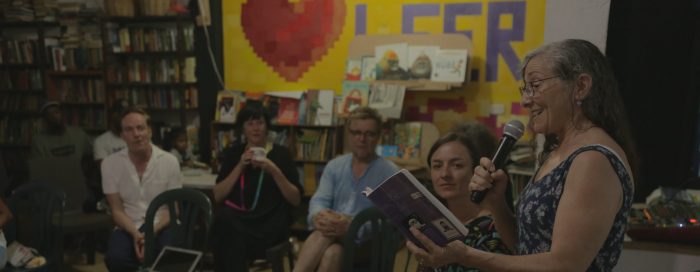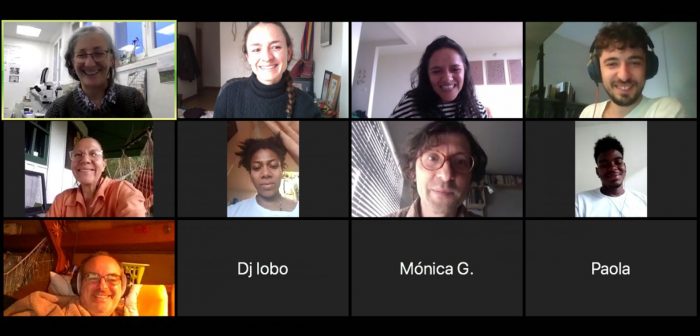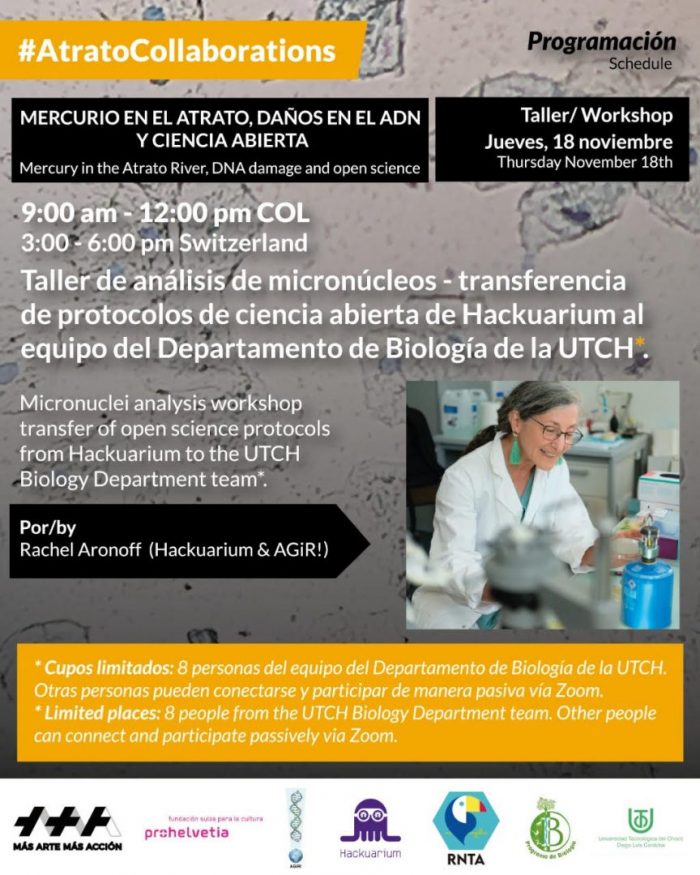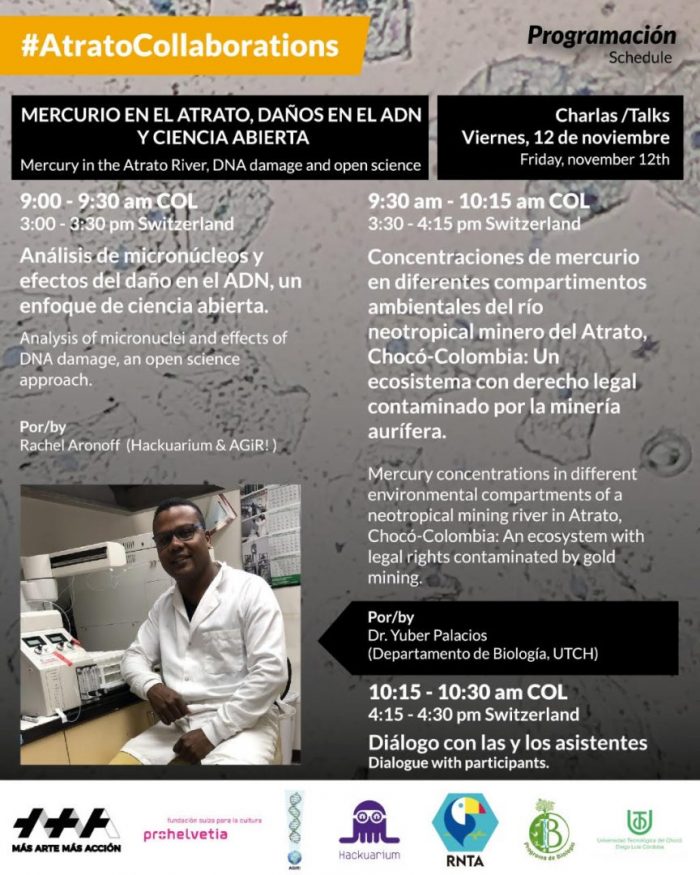Atrato [Collaborations] Micronuclei Analysis
Atrato [Collaborations] Micronuclei Analysis
About Atrato Collaborations
Atrato Collaborations was a project that for 4 years (2018 – 2020) enabled the exchange between cultural managers and artists from Colombia and Switzerland. In Colombia, artists and managers from Quibdó participated whose practice relates to the Atrato River as a subject of rights. Swiss and German artists and managers participated who were interested in collaboration between practices and contexts that are far apart, but can meet -improbably- to generate connections, inspire each other and lead to common actions.
#AtratoCollaborations – was a project carried out in the framework of the programme “COINCIDENCIA” Switzerland – South America cultural exchanges of the Swiss Foundation for Culture Pro Helvetia. #Coincidence_Prohelvetia #Coincidence_Colombia
Micronuclei Analysis
Rachel Aronoff linked Hackuarium’s expertise on open science with Quibdó’s science collectives through a series of talks, hoping to do a ‘Micronuclei Analysis’. “While wondering what this really means, and whether ‘bio’ gold certificates might actually fly (for the old-fashioned ‘panning’ for gold mining, as opposed to any operation, legal or illegal, that uses mercury to concentrate gold), Rachel hoped, before this Coronavirus season, to run a series of public ‘micronucleus’ workshops, to determine whether people observing DNA damage inside their own cheek cells would be prompted to take action to ensure more justice in the region.” While we are able to resume these workshops, Rachel will lead a series of talks around the microkernel proposal, the experience of creating a do-it-yourself ‘Coronavirus Detective’ and about Hackuarium’s open science and co-operative approach.

“To work further towards achieving a co-constructed project with the people of the Atrato River region and the More Art More Action collaborators, in order to bring more awareness and justice to the issues around a river with ‘human rights’ in an area already poisoned by mercury from legal and illegal gold mining, raising awareness about the damage caused to cells by mercury can help people find the strength to instigate real change.”

The collaboration process with Rachel closed with an open science methods exchange between Hackuarium + the Biology Department of the Technological University of Chocó. It consisted of a talk on 12 November and a hands-on workshop to learn how to do cell micronucleus affection sampling with open science techniques on 19 November. On 24 November 2021, Dr Rachel Aronoff delivered the Micronucleus Analysis Workshop – Hackuarium to the Universidad Tecnológica del Chocó – UTCH team accompanied by Dr Yuber Palacios. The workshop was aimed at colleagues from the UTCH biology programme.


